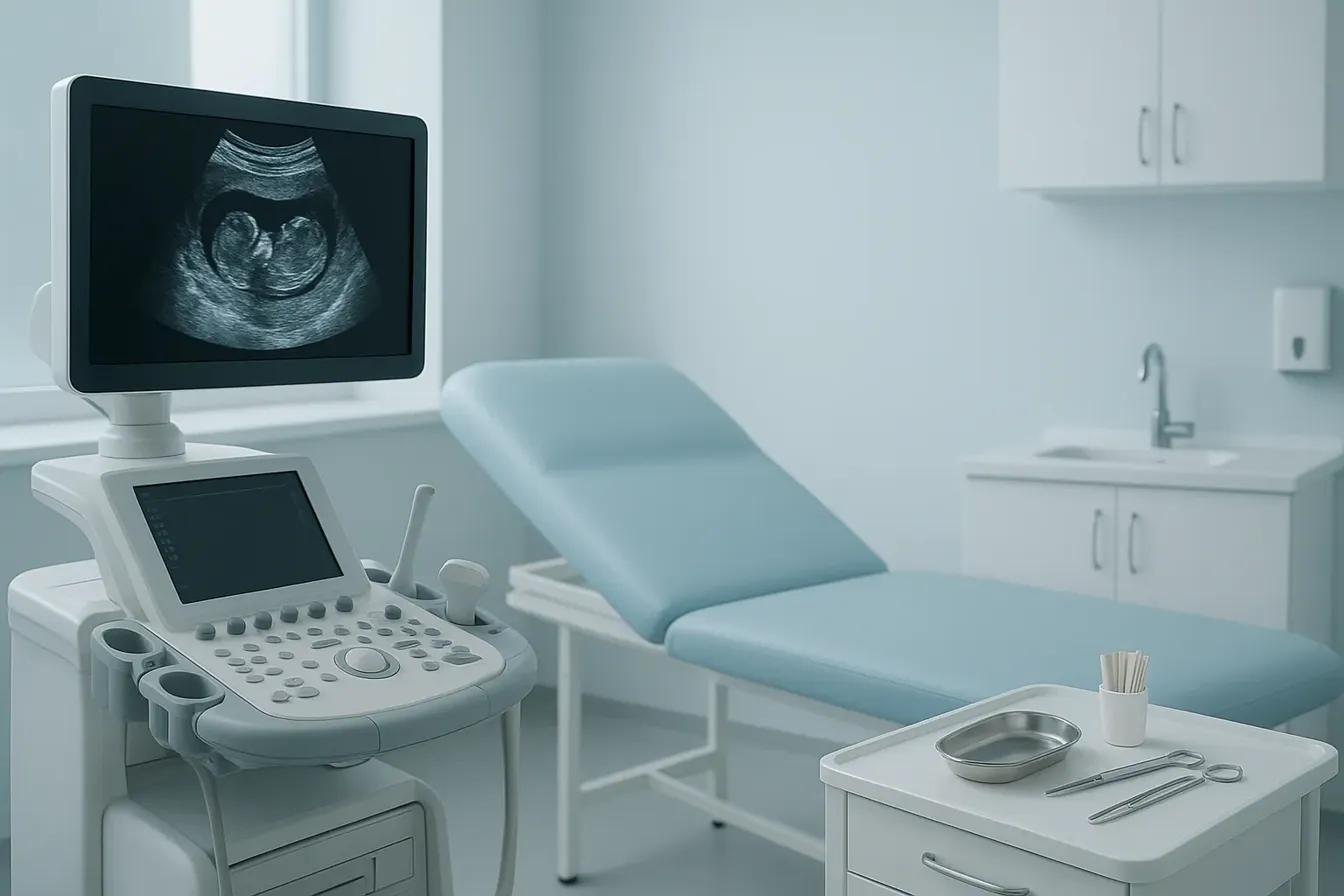Empowering Choices: The Essentials of Birth Control Counseling

Understanding Infertility and Comprehensive Women's Health Services
Definition and prevalence of infertility
Infertility affects approximately 10-30% of couples in the United States. It is defined as the inability to conceive after one year of trying, or six months for women over 35. Causes vary widely, including unexplained infertility, polycystic ovary syndrome (PCOS), endometriosis, and age-related declines in egg quality.
Overview of comprehensive obstetrics and gynecology services
Leading centers such as NYU Langone, Northwell Health, and RMA of New York provide extensive services including fertility testing, ovulation induction, IUI, IVF, egg freezing, donor sperm and eggs, and surgical interventions. These clinics prioritise early diagnosis, advanced reproductive technologies, and supportive care such as acupuncture and psychological counseling.
Importance of personalized and advanced women's healthcare
Personalized treatment plans and compassionate care are essential to address physical, emotional, and lifestyle needs, improving outcomes. Clinics offer culturally sensitive and inclusive services for diverse populations, including support for LGBTQ+ patients. Adjunct therapies like Intralipid and NAD+ infusions can enhance fertility health. Support programs for mental health and stress reduction also play a critical role in comprehensive women's health services.
The Power of Personalized and Woman-Led Fertility Care

How does a woman-led healthcare provider influence women's health care?
Woman-led healthcare providers play a crucial role in enhancing women's health outcomes by prioritizing the distinct needs of female patients. Their leadership fosters an atmosphere of trust and empathy, encouraging women to openly discuss sensitive health issues. This environment enables more comprehensive, attentive care tailored to the nuances of women's reproductive health. Beyond direct care, these providers often advocate for advances in women's health research, ensuring treatment options are up to date and tailored. Such leadership supports a patient-centered model that empowers women to actively manage their reproductive and overall health.
Why is personalized care important in obstetrics and gynecology?
Personalized care in obstetrics and gynecology is vital as it addresses each woman’s individual genetic, medical, and lifestyle profile, enhancing care effectiveness. Techniques such as non-invasive prenatal testing (NIPT) and genetic counseling help detect potential chromosomal abnormalities early, allowing informed decisions during pregnancy. Molecular profiling advances enable targeted treatments in gynecologic oncology, improving success rates. Further, genetic screening for risks like gestational diabetes, preeclampsia, or hereditary cancers allows for proactive management and prevention. Personalized care not only optimizes health outcomes but also respects each woman’s unique circumstances and preferences, as emphasized by comprehensive reproductive healthcare at NYU Langone Fertility Center.
What advanced diagnostic and treatment technologies improve infertility care?
Fertility clinics in Queens, NY, such as NYU Langone and the New York Fertility Center, utilize cutting-edge technologies to diagnose and treat infertility more effectively. State-of-the-art preimplantation genetic testing improves embryo selection during IVF, boosting pregnancy success rates. Therapies like Intralipid infusions regulate immune responses, helping women with autoimmune-related infertility or recurrent pregnancy loss. NAD+ therapy enhances egg quality and cellular health, improving conception chances in advanced reproductive age patients. These technologies, combined with personalized treatment plans and continuous emotional support, make fertility care more precise and compassionate, tailored to each patient’s unique needs.
Innovations and Support Services in Fertility Treatment

What advanced women's health care practices are commonly offered in specialized clinics?
Specialized fertility clinics in Queens, NY, provide a wide range of advanced women’s health care services designed to improve reproductive outcomes and overall patient well-being. These centers commonly offer cutting-edge fertility treatments such as in vitro fertilization (IVF), intrauterine insemination (IUI), and egg freezing (oocyte cryopreservation). These procedures enable personalized approaches to conception, including fertility preservation and donor gamete options.
Beyond traditional fertility treatments, some clinics integrate innovative supportive therapies to enhance success rates. For example, the New York Fertility Center offers in-house IV infusions such as Intralipid therapy, which aids immune regulation and embryo implantation, and NAD+ therapy to improve egg quality and cellular health. These therapies represent a novel approach to addressing complex factors that affect fertility.
Holistic care is also emphasized, with fertility wellness programs incorporating acupuncture, yoga, nutritional counseling, and mind-body stress reduction techniques. These services help manage the psychological stress and physical demands of infertility treatments. Psychological counseling and couples therapy provide emotional support, fostering resilience throughout the treatment journey.
Recognizing the diverse needs of their patient population, fertility centers offer specialized programs tailored for LGBTQ+ individuals and non-binary patients, ensuring culturally sensitive and inclusive care. Additionally, flexible scheduling and support options cater to public service workers such as teachers, healthcare professionals, and law enforcement personnel to accommodate their challenging schedules.
Together, these advanced and comprehensive services exemplify the modern, patient-centered approach embraced by fertility clinics in Queens, providing hope and a supportive environment for those facing infertility.
Patient Stories: Navigating the Emotional and Medical Journey of Infertility
Personal Experiences with Unexplained Infertility and Endometriosis-Related Infertility
Amanda and Jeffrey from Glendale, California, faced the difficult challenge of Love Loss and Mystery of Unknown Infertility after trying to conceive for four years. Despite thorough medical evaluations, no specific cause was identified, a situation that affects 15%-30% of infertile couples according to American Society for Reproductive Medicine on Infertility. They pursued treatments such as IUI and IVF Fertility Treatments at the specialized fertility center of Loma Linda University Center for Fertility & IVF, which integrates faith-based and cutting-edge medical care.
Similarly, Martha from Melbourne encountered infertility despite good health and regular cycles. After a year of trying to conceive, diagnosis revealed Endometritis and Endometriosis diagnosis and surgery causing scar tissue—a condition requiring surgery and multiple IVF cycles. Her experience highlights how underlying medical issues can require intensive and multi-step treatments.
Physical, Emotional, and Financial Challenges in Fertility Treatment
Both Amanda and Martha's journeys exemplify the complex physical toll that fertility treatments can impose. Amanda benefited from lifestyle adjustments such as a Vegetarian Diet and Acupuncture for Fertility and Mindfulness in Fertility Treatment practices that potentially enhanced her IVF success. Martha, however, suffered Ovarian Hyperstimulation Syndrome after IVF, illustrating physical risks linked to aggressive fertility therapies.
The emotional rollercoaster of hope, disappointment, pregnancy, and miscarriage underscores the profound Emotional Challenges of Infertility. Financial strain also often accompanies prolonged fertility treatment, adding additional stress to couples already coping with uncertainty.
Importance of Mental Health, Social, and Community Support During Treatment
Recognizing these pressures, many fertility centers, such as Infertility support at NYU Langone and regional support groups like Support from Pink Elephants, emphasize counseling and peer support. Psychological services addressing anxiety and stress and community networks provide critical emotional relief and a space for shared experiences, which patients like Martha advocate as essential during treatment.
Role of Early Diagnosis and Specialized Care in Improving Outcomes
Experts concur that Importance of early endometriosis diagnosis can improve treatment outcomes. Martha's diagnosis eventually allowed targeted interventions, while comprehensive, individualized care programs at institutions such as Loma Linda University Center for Fertility & IVF and NYU Langone Reproductive Specialists in Brooklyn and Queens tailor therapies based on patient needs and histories. This approach maximizes the chances of conception while offering compassionate, holistic support through the medical and emotional complexities of infertility.
Community and Clinical Resources Empowering Fertility Success

What are the key features of comprehensive obstetrics and gynecology services?
Comprehensive obstetrics and gynecology care covers every stage of a woman's reproductive health journey. This includes prenatal care, labor and delivery, postpartum support, routine gynecological exams, and family planning. Specialized services handle high-risk pregnancies and genetic counseling, alongside advanced surgeries tailored to individual needs. Many centers also integrate breast health screening, menopause management, and infertility treatments, as described in Northwell Health Queens NY.
How do local fertility centers support patients in Queens, NY?
Queens benefits from several esteemed fertility centers such as NYU Langone, RMA of New York, Northwell Health, and the New York Fertility Center. These clinics provide broad infertility services including diagnosis, IVF, intrauterine insemination (IUI), egg and sperm donation, as well as fertility preservation techniques like egg freezing. They often feature cutting-edge technologies such as Preimplantation genetic testing and immune therapy infusions to enhance treatment success, highlighted in resources like NYU Langone Infertility Support and RMA Fertility Success Stories.
What infertility support networks are available?
Support extends beyond medical treatments to emotional and psychological care. Counseling services help couples and individuals cope with stress related to infertility. Specialized groups, for instance, Pink Elephants, offer miscarriage support, while fertility clinics provide mind-body wellness programs including acupuncture and yoga to reduce stress and promote well-being, as detailed in NYU Langone Fertility Support and Loma Linda Fertility Center resources.
How accessible are fertility services for diverse populations?
Many Queens clinics ensure inclusivity and accessibility by accepting personal insurance that can cover some treatments. They offer culturally sensitive care, welcoming LGBTQ+ families and non-binary patients, as reported by RMA of New York and Northwell Health Fertility NYC. Special programs support public service workers with flexible scheduling. Recent laws mandate insurance coverage for fertility preservation, especially for cancer patients, increasing access to vital reproductive options as explained in Northwell Health insights.
These combined clinical and community resources underscore a patient-focused, comprehensive approach to fertility care in Queens, enhancing women’s reproductive health outcomes with compassion and expertise.
Breaking the Stigma: Advancing Awareness and Fertility Preservation

How do societal factors impact delayed childbirth and fertility decline?
Many women in the United States delay childbirth due to career priorities, extended contraceptive use, and societal norms. This delay can lead to diminished fertility since female reproductive prime typically ranges from ages 16 to 28, while the average age of first birth is now 26 — right at the end of this prime fertility window. As women age, egg quality decreases, increasing challenges in conceiving naturally. For more details on this topic, see Erasing the stigma of infertility.
What reproductive options are available to address fertility preservation?
Egg freezing is an important reproductive technology that allows women to preserve their fertility. During this process, eggs are stimulated and harvested before being frozen in liquid nitrogen for future use. This option helps women postpone childbirth while maintaining the potential to conceive later with their own genetically linked eggs. Learn more about this procedure and fertility preservation options at Northwell Health Fertility NYC.
How does legislation support fertility preservation and insurance coverage?
In New York State, recent legislation mandates insurance coverage for fertility preservation services for cancer patients. Effective since January 1, 2020, this law ensures access to treatments such as egg freezing, making it easier for women to safeguard their reproductive options if medical conditions threaten fertility. Additional insights can be found at Erasing the stigma of infertility.
Why is promoting open dialogue and destigmatizing infertility important?
Infertility affects a significant portion of couples and women, yet stigma and emotional barriers often prevent open discussion. Promoting awareness helps normalize infertility challenges, encourages timely diagnosis and treatment, and fosters supportive communities. This is especially critical in diverse communities like Queens, NY, where inclusive, culturally sensitive care enables individuals from all backgrounds to feel respected and supported in their fertility journeys. See resources on Personalized Fertility Care and Inclusive Fertility Services and Comprehensive Infertility Treatment Approach at NYU Langone.
Hope and Resilience: Looking Ahead in Fertility Care
Advancements and Compassionate Care
Fertility treatment today combines cutting-edge technology with deeply personalized support. Clinics in Queens and beyond offer IVF, egg freezing, donor options, and specialized therapies like Intralipid and NAD+ infusions. Comprehensive programs also address emotional well-being through counseling, yoga, and mindfulness.
Encouragement for Women Facing Infertility
Women navigating infertility find hope in success stories and tailored care. Facilities emphasize inclusivity, mental health, and support networks to empower women through challenges. Collaborative teams partner closely with patients to optimize outcomes and foster resilience.
The Future of Fertility Care
Continued innovation and individualized treatment remain vital. As new therapies emerge and awareness grows, women are better equipped to make informed choices. Personalized strategies promise improved success rates and compassionate care tailored to each unique journey.





.png)